About us
The Research Group for Historical Transformation Studies focuses on the period of postsocialist transformation in a longer temporal context. Its innovation lies in approaching economic and political phenomena from the perspective of cultural and social history. The focus of our interest is on Czech and Slovak transformation processes, but with a transnational outlook towards the wider postsocialist region. The research group examines questions of lived experience of economic and political change and the transformation of culture and values in general. We ask how the ideological goals of the transformation project have been articulated, lived and reconciled with the lived experience of different social and professional groups. The project approaches transformation processes through the key categories of gender, class and space, and focuses on ‘history from below’, which has so far been underrepresented in the examination of postsocialist transformations after 1989.

About the project
With over thirty years since the collapse of communist regimes in Central and Eastern Europe, historians are faced with a pressing new challenge to turn their attention to the 1990s and the period of democratic change and marketization of the economy in the region. Although the postsocialist transformations have produced an ample social science literature, historians are in the advantageous position of knowing the outcomes, as well as the fallout, of transformation and have access to sources that were unavailable at the time to other disciplines. As archival materials from this period are becoming available, vast new terrains for historical research are being opened. Our aim is to study transformation processes within longer historical continuities, including the larger processes of change that took place in the world economy since the 1970s. The historicization of the liberal transformation project of the 1990s is particularly topical considering the move away from or outright rejection of liberal politics in certain CEE countries today, as well as the politicized struggle over the interpretation of 1989 and the postsocialist transformations more generally.
While today we know much about what key actors wanted to achieve in the transition to liberal democracy and market economy, we know less about the extent to which the population accepted or contested this project, especially in a longer perspective of the changing norms, values and social practices that occurred during the late socialist period. The work of the research group will therefore focus on three areas in which one of the key transformation processes took place: the emergence of a new “middle class”. Discursively rather than economically constructed, the middle class became one of the key mobilizing slogans of the transformation project, and at the same time an often vague aspiration linked to the idea of a “return to Europe.”
Transformation of thought
This part of the project will focus on the question of how the media and popular culture have helped shape a new “middle class” imagination from the 1980s onwards. It will thus attempt to reconstruct the thought world (Sinnwelt) of the transition period. It will ask to what extent the population was receptive to key ideological messages in the media and representations, such as the emphasis on individual responsibility, entrepreneurship, geopolitical orientation towards the West, and other contemporary values and aspirations.
Transformation of labour
The second area will focus on the cultural and social history of changes surrounding the structure of the economy, everyday experience of work and attendant social restructuring, drawing comparisons with the expanding field of transformation labour history in Poland, Germany and Hungary. It will examine key processes such as deindustrialisation, privatisation of industry, the rise of private enterprise, and labour market transformations, with an emphasis on their experience by specific actors.
Transformation of space
The transformation processes did not take place evenly in large urban centres and peripheries. The project will carefully select a set of local case studies to trace how spatial inequality was perceived and contested by local actors and how it translated into new social stratification and gender regimes. The project will thus show the different outcomes and subjective understandings of the same processes, such as privatisation and restitution, in different spaces.
Research team
Veronika Pehe

Martin Babička
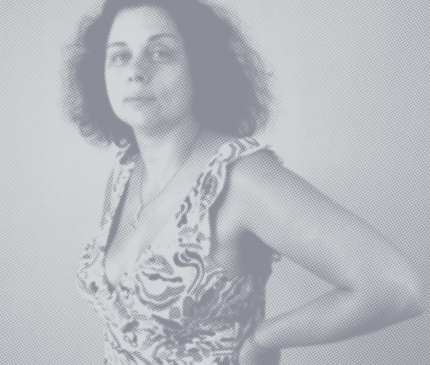
Lenka Krátká
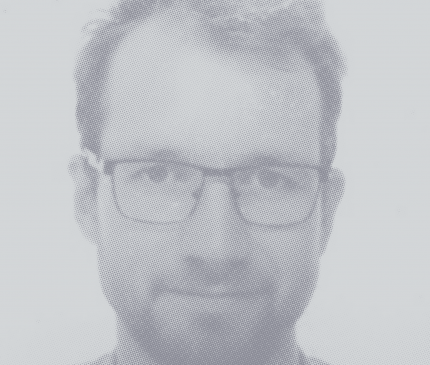
Václav Rameš
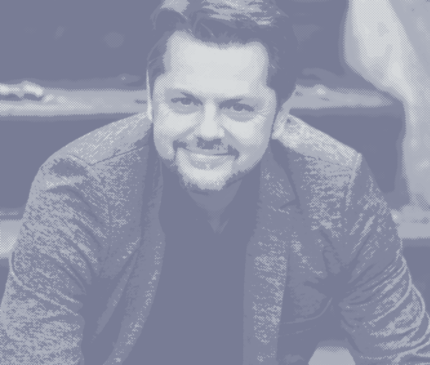
Michal Kopeček

Further collaborators
Petr Kupka, external senior researcher
Berenika Čejková, research assistant
Marta Harasimowicz, research assistant
Petra Prokopová, research assistant
Sandra Plaskoňová, research assistant
Former team members
Marie Černá, senior researcher
Publications
Ksenia Robbe and Veronika Pehe, “Postsocialist Transitions in Eastern Europe as Contested Heritage”. In: Ihab Saloul and Britt Baillie (eds.), The Palgrave Encyclopedia of Cultural Heritage and Conflict. Palgrave Macmillan, Cham. https://doi.org/10.1007/978-3-030-61493-5_253-1
Lenka Krátká, “The rise and fall of Babetta brand: Three decades of moped production in southern Slovakia, 1970–99”, The Journal of Transport History, Online First https://doi.org/10.1177/00225266251322397
Václav Walach, Petr Kupka and Veronika Pehe, “Can detective fiction save liberal democracy? On the performative functions of crime control in the Czech TV series The Nineties,” Crime, Media, Culture 2024, Online First, https://doi.org/10.1177/17416590241308780
Veronika Pehe, Petr Kupka and Václav Walach. “Postsocialism as a Crime: The Role of Police Memory in the Remembrance of the Post-1989 Systemic Changes in the Czech Republic”. East Central Europe, 51, 2-3 (2024), 289-314.
Martin Babička, Discourses of Moral and Ecological Crisis in the Czech Post-Socialist Transformation. In: Balázs Trencsényi – Lucija Balikić – Una Blagojević – Isidora Grubački, eds., East Central European Crisis Discourses in the Twentieth Century. Routledge, 2024. 368-391, doi:10.4324/9781003438298-18
Veronika Pehe and Petr Kupka. “Legal, Illegal, Either Way Informal: Examining Continuities of Small-Scale Entrepreneurship between Late Socialism and Postsocialism in Czechia.” Journal of Contemporary Central and Eastern Europe 32, 2 (2024): 257–277.
Lenka Krátká, “Post-1989 women’s struggle between career growth and everyday duties”. Journal of Contemporary Central and Eastern Europe, 1–14 (2024). https://doi.org/10.1080/25739638.2024.2380150
Veronika Pehe, Totalitarianism as Defensive Memory of the Transformation: Unpacking a Czech Mnemonic Conflict. In: Hanna Haag – Till Hilmar, eds., Erinnerung des Umbruchs, Umbruch der Erinnerung. Die Nachwendeziet im deutschen und ostmitteleuropäischen Gedächtnis. Wiesbaden: Springer, 2024, 225-244.
News
Workshop on Disadvantages and Inequalities
5/2025 | On 21 May, we are organising the workshop “Social and Health Disadvantages and Spatial Inequalities in Communist and Post-Communist Czechoslovakia”. The workshop will explore how the communist state treated people with disabilities, examining institutional background, social care policies, and personal experiences.
Two International Visiting Fellowships
3/2025 | Congratulations to our two team members, Václav Rameš and Martin Babička, who have both been awarded prestigious visiting positions and will each spend six months as fellows at the Ludwig Maximilian University in Munich and the Institute for Advanced Study in the Humanities in Essen, respectively, working on their individual research projects in dialogue with international scholars and strengthening the transnational dimension of our research group.
Lecture at the Institute of Contemporary History in Ljubljana
10/2024 | On Wednesday 9 October 2024, Martin Babička will give a lecture at the Institute for Contemporary History in Ljubljana. The lecture will focus on what the presence of astrology in the Czech and Slovak media during the transformation says about the postsocialist relationship to science and politics.
Presentation at the conference on science, religion, and ideology
6/2024 | On 6-7 June 20024, Martin Babička will participate in the conference on Sciences, Ideologies, and Religions in 20th Century Central, Eastern and Southeastern Europe, organised in Athens by CAS Masaryk Institute and Archives, University of Erfurt, University of Vienna and National Hellenic Research Foundation. He will give a paper on esotericism, postmodernist thought, and the rise of scientific scepticism in the 1990s.
Workshop: Bourdieuian perspectives on postsocialism
5/2024 | On 10 May, together with the CAS Institute of Ethnology, we are organising a workshop on Bourdieu and postsocialism . The workshop will explore the current use of Bourdieu’s conceptual apparatus for the historical analysis of state socialism and postsocialism, opening a debate on the opportunities and pitfalls of its application on that period.
Lecture at the the Faculty of Social Sciences of Charles University
4/2024 | On 11 April, Veronika Pehe and Petr Kupka presented the first outcomes of their research at the Sociological Evenings at the Faculty of Social Sciences of Charles University, where they gave a lecture with a title “I would have a hard time without a waiter’s degree”. The social practice of small business between late socialism and capitalism”.
Workshop: Re-Constructing Perestroika(s)
3/2024 | On 14-15 March, together with our colleagues from Georgetown University and Leibniz Center for Contemporary History, we are organising the workshop “Re-Constructing Perestroika(s): In Search of a New Vocabulary for the Transformation of Central and Eastern Europe and Eurasia”. This worskhop intends to transcend the conventional boundaries—both geographic and temporal—of our typical understanding of Perestroika as well as aspires to bring forth fresh perspectives on the period spanning Central and Eastern Europe, as well as Eurasia.
Internship for high school students
2/2024 | This year, the Institute for Contemporary History in Prague is hosting an internship for high school students focusing on the cultural history of postsocialism, led by Martin Babička. The students will, among other things, have the opportunity to work with archival sources and present a paper together at a student conference organised by the Czech Academy of Sciences in November 2024.
Presentation at the workshop on the poetics of climate change
12/2023 | On Friday 8 Dec 2023, Martin Babička will participate in a workshop titled “How to Narrate Climate Change and Environmental Grief? Poetics of Climate Change in Contemporary Literature and Drama”, organised by the CAS Institute for Czech Literature. He will present a paper on environmental grief in late-socialist literature.
Veronika Pehe’s lecture as part of the Transformative Seminar at the University of Vienna
Presentation at the conference "Occultism and Popular Culture in Europe"
10/2023 | Martin Babička will participate in the conference on Occultism and Popular Culture in Europe at the University of Copenhagen on 22–23 November 2023. He will give a paper on postsocialist occult television programmes, presenting first outcomes of his research of transformational esoteric thought and culture.
Lecture for Korean Ministry of Unification
09/2023 | On 19 September 2023, the Institute of Political Studies FFS CUNI held a lecture on “Transformation of Socialism into Democracy”, attended by trainees of the National Institute for Unification Education, Ministry of Unification of the Republic of Korea. The lecture was given by Václav Rameš, who discussed with the participants the development of Central Europe since World War II. The event was co-organised by the Embassy of the Republic of Korea in the Czech Republic.
CfP: Re-Constructing Perestroika(s)
09/2023 | Together with ZZF Potsdam and Georgetown University, we are organising a workshop to be held in Prague 14–15 March 2024. We are calling for proposals for papers that look at Perestroika in any part of Central and Eastern Europe and Eurasia from a fresh angle, use unusual sources or introduce a new paradigm designed to further understanding of the societal processes taking place at the time. The deadline for proposals is 31 October 2023.
Presentation at the international conference "Workplace democracy"
06/2023 | On 28-29 September 2023, Václav Rameš will present a paper at a conference organized by Université d’Évry (Paris – Saclay) and Ruhr Universität Bochum. The conference will focus on the history of workplace democracy ideas and practices. Václav’s paper will summarize his previous research on the history of workers’ self-management throughout the 20th century in Czechoslovakia, as well as outline the perspectives of the future research in this field.
Presentation at the annual Czech Society of Criminology conference
06/2023 | Veronika Pehe, together with Petr Kupka, an external collaborator of the Research Group, will present the first outputs of their research on private entrepreneurship in the 1980s and 1990s. They will take part in the annual conference of the Czech Society of Criminology (19-21 July) with a paper entitled “The Limits of (I)Legality. Small Business and Informal Practices in Late Socialism and Post-Socialism”.
Forthcoming book of interviews
06/2023 | During the summer, Karolinum Press will publish a book of interviews entitled Everything Was New, which gathers several perspectives on the transformation process through the eyes of contemporary actors, edited by Lenka Krátká. The edition of interviews with ten men and one woman, actors of the postsocialist transformation of the Czech economy, is accompanied by an introductory methodological essay and a final interpretive chapter that traces the ways in which the narrators maintain a symbolic distance from the negative phenomena that accompany today’s general perception of the transformation.
New edited volume forthcoming
05/2023 | A collective monograph entitled Remembering the Neoliberal Turn: Economic Change and Collective Memory in Eastern Europe after 1989, co-edited by Veronika Pehe and Joanna Wawrzyniak, will be published by Routledge in August. Although not based on the work of the research group, it will be of interest to scholars of postsocialist transformations across disciplines. It approaches recent history through the lens of the memory of economic change.